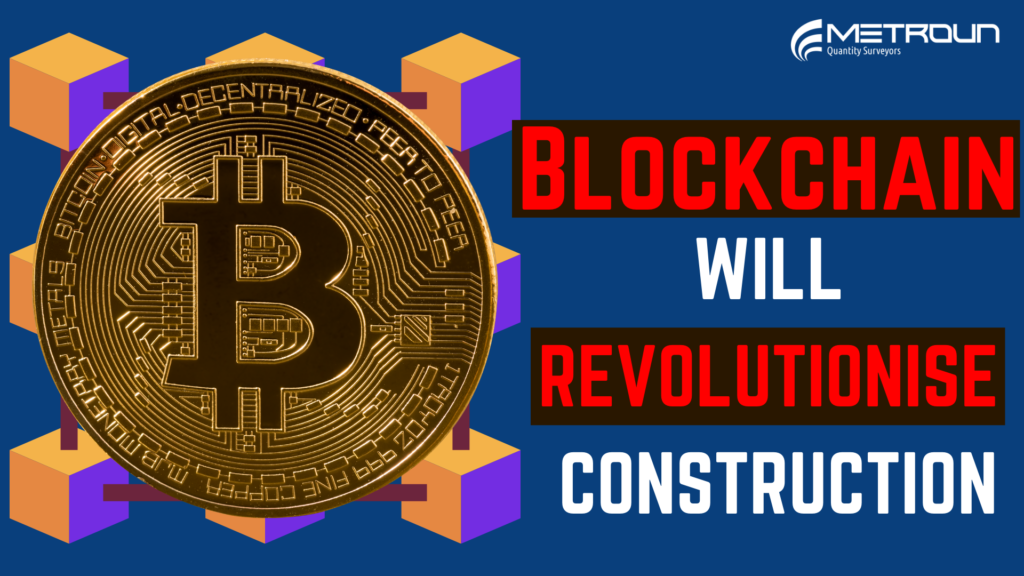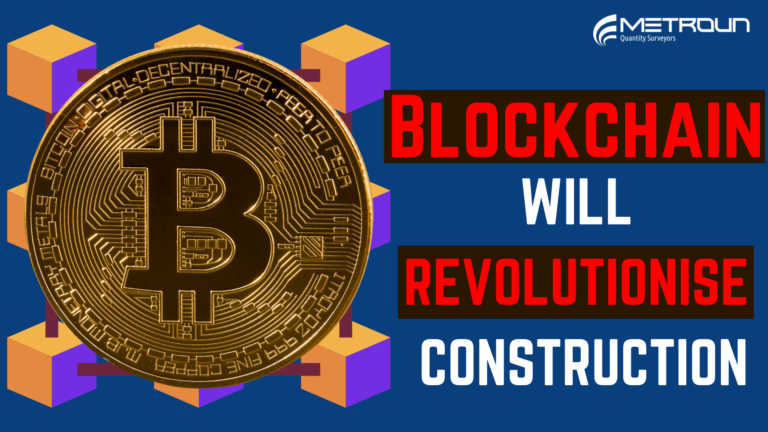Unless you’ve been living under a rock for the last few years, you’ve probably heard of cryptocurrencies. However, you may not be aware, that the technology behind them, have the ability to make some drastic changes to construction. In this article, we’re going to be discussing blockchain technology, and the impact it will have on the future of construction.

So, we should probably start of by explaining what blockchain technology actually is. To put simply, blockchain is a system of recording information. It’s unique in that the information isn’t stored in a central location, but distributed across a network. The information is stored in chronological order on what’s known as a public ledger. The public ledger, contains a list of transactions that is verified by users of the system. So in other words, no one person or organisation is in control of the information. This makes it extremely difficult or even impossible to be corrupted. The technology was first introduced through a cryptocurrency called Bitcoin. Individuals own Bitcoin, and use it as a means to transfer value without going through a centralised banking system.
However, what we’re interested in is how this can affect the construction industry. In this video, we’re going to talk about a report conducted by the Institution of Civil Engineers called Blockchain Technology In The Construction Industry: Digital Transformation for High Productivity.
The construction industry is becoming digital. And with that, administrative tasks are becoming automated. Blockchain technology can ensure the automated tasks are transparent and uncorrupted. Here’s a hypothetical example ICE provide. Let’s say on a construction site, every labourer enters and exists site using an ID card. This is a system already in use on some sites for safety reasons. However, let’s say that behind this entry system there is a record kept on the blockchain system. The hours worked can be verified and recorded on the distributed ledger between the client. Already this is a more efficient system then we have on most projects. However, the technology can go even further. The hours logged can initiate something known as a smart contract. A smart contract is a digital contract which can execute terms automatically when predefined conditions are met. In this instance, hours worked on site. The smart contract could be used to create a payment certificate and initiate payment between parties. This is just one example, and in actual fact there are a number of ways that this system could be integrated through all aspects of construction using different types of sensors.
Straight away we can see a few issues being addressed here, corruption, late payments, record keeping, accuracy of information and lot’s more. With information being stored on a decentralised ledger, there is a clear transparency of information which both parties can use as reference. It goes without saying that transparency and decentralisation make corruption extremely difficult. Something which is often estimated to effect construction cost by 10 – 30 percent.
ICE state 3 ways blockchain technology can benefit the construction industry:
1. Payment and Project management;
Blockchain technology can be used to initiate payments based on digitally approved work, contractual terms and smart contract actions. It can also be used for project management, through all steps of the project lifecycle with for example things like, transparent design approvals, transparent communication, real time KPI monitoring, continuous project updates, automated administration and enhanced accountable collaboration.
2. Procurement and Supply chain management;
The technology can be used to ensure provenance for structural materials and create a verified chain of custody transparent for all parties in the supply chain. In other words, information can be traced all the way from supply of raw materials, fabrication, transportation and contractor usage.
3. BIM and Smart asset management.
BIM aims to provide a single source of truth for everything related to a construction project. This is a shared ability with blockchain technology. Together they can complement each other. ICE states the following:
“BIM can combine information from the blockchain, such as supply chain information, provenance of materials, payment details, etc. particularly during construction; and, it can also assign information to the blockchain, like design decisions, source of data or model modification orders. This information can later be used by smart contracts to initiate further action, such as payments or material orders.”
The potential of blockchain in construction is huge. If you want to learn more, we highly recommend the report by the ICE, click here to find out more.






